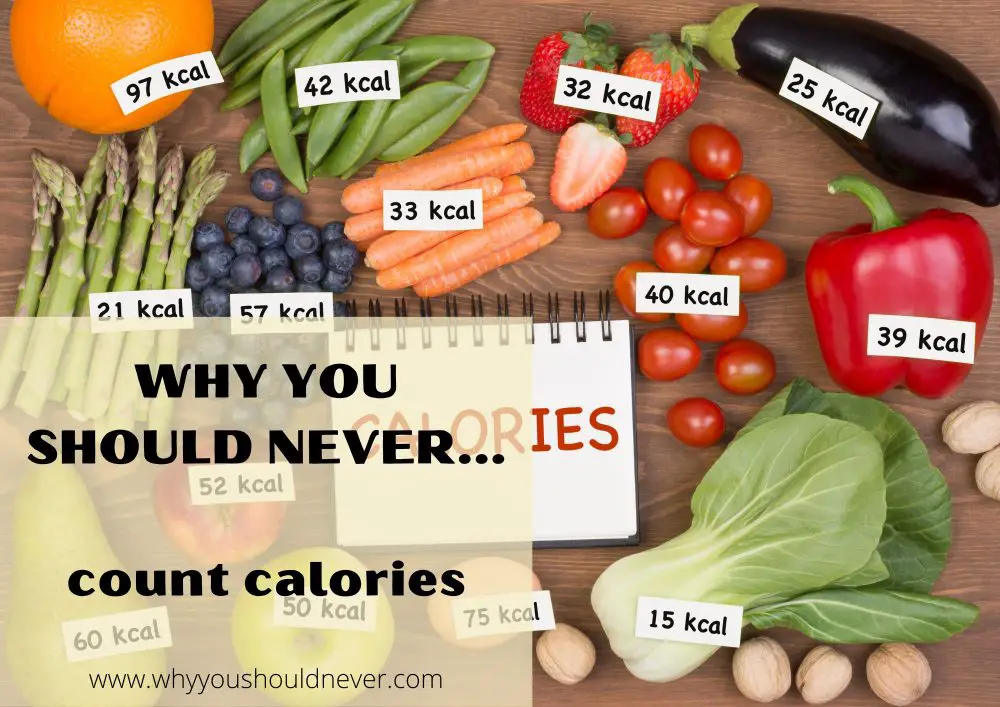![]()
Why You Should Never Count Calories
If you’ve been in the weight loss community long enough, you’ll no doubt have heard the mantra: “Calories in, calories out”, the thought behind this being that, at the end of the day, if you consume more calories than you burn, you’re going to put on weight.
It would stand to reason, then, that counting calories is one of the most popular practices for people looking to lose weight or maintain their current physique. It involves tracking the number of calories consumed in a day and ensuring that it falls within a certain range.
People often don’t realize just how calorific their favorite foods are, so becoming more mindful is something everyone should strive for.
That all sounds good, right?
Well, maybe not. While it may seem like a good idea in theory, there are several reasons why this practice won’t be a beneficial, long-term strategy for those serious about losing weight or staying healthy. Let’s take a look at some of those reasons below.
7 reasons why you shouldn’t count calories
1. It’s not an accurate science
Counting calories assumes that all calories are created equal, but this is simply not true. The quality of the food you eat matters just as much as the quantity. For example, 100 calories from a donut will affect your body differently than 100 calories from an avocado. If you’re not also eating healthily, could end up meeting your calorie limits without getting the nutrients and vitamins you need.
Additionally, calorie counts on food labels can be inaccurate by up to 20%. When you’re on a strict diet, an added 20% on every meal you eat can push you way over your limit!
2. It can lead to an unhealthy relationship with food
When you’re constantly counting calories, it’s easy to become obsessive about what you eat and how much of it you’re consuming. You might start to cut out certain healthy foods that are nutrient rich all because they contain too many calories. This can lead to disordered eating habits, deficiencies, and even eating disorders like anorexia or bulimia.
3. It doesn’t take into account individual needs
Everyone’s body is different and has different needs when it comes to energy consumption. Counting calories assumes that everyone needs the same amount of energy each day, which is not true. Factors like age, sex, body type, and activity level all play a role in determining how many calories a person needs.
If you are going to count calories, you should first research the exact amount of calories you (specifically) need to stay healthy, as eating too little could actually have an adverse effect.
4. It’s time-consuming and stressful
Counting calories requires constant tracking and measuring of food, which can be a hassle and take up a lot of time. You’ll need scales and measuring cups to accurately weigh and measure almost every food item you eat/use in cooking, plus a calorie tracking diary or app that you fill out every day.
Worrying about staying within a certain calorie range can also cause unnecessary stress and anxiety.
5. It ignores the importance of intuitive eating
Intuitive eating involves listening to your body’s natural hunger and fullness cues to determine when and how much to eat. Counting calories overrides these cues and teaches you to rely solely on external rules and restrictions rather than your own internal signals.
6. It doesn’t address the root cause of weight gain.
Counting calories is a superficial approach to weight loss that doesn’t address the underlying causes of weight gain, such as stress, lack of sleep, hormonal imbalances, or emotional eating. Without addressing these root causes, it’s unlikely that counting calories will lead to long-term weight loss success.
7. It’s not sustainable
Research suggests that 98% of people who go on diets fail and regain the weight they lost. So, the likelihood is that, should you attempt this already restrictive and time-consuming practice of counting calories, you’ll give up and regain whatever weight you managed to lose (or, worse yet, gain more weight than you had before!).
The truth is, you can’t live a fulfilling life if you’re constantly counting calories, because it simply isn’t practical. Sure, if you’re at home most of the time and never go out, you’ll do okay, but if you have a social life, the whole thing is going to get real old, real quick.
In conclusion, counting calories might make sense in theory, but it’s not an accurate or sustainable way to maintain a healthy lifestyle.
Instead of focusing on numbers, try listening to your body’s natural signals and trusting yourself to make healthy choices. By doing so, you’ll not only improve your physical health but also cultivate a more positive relationship with food and your body.




